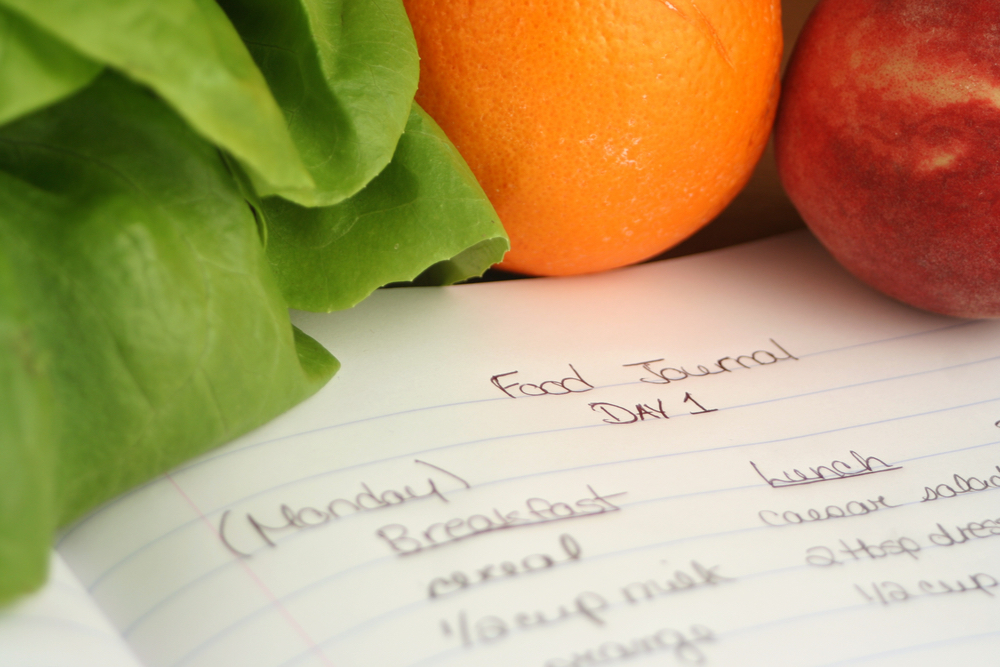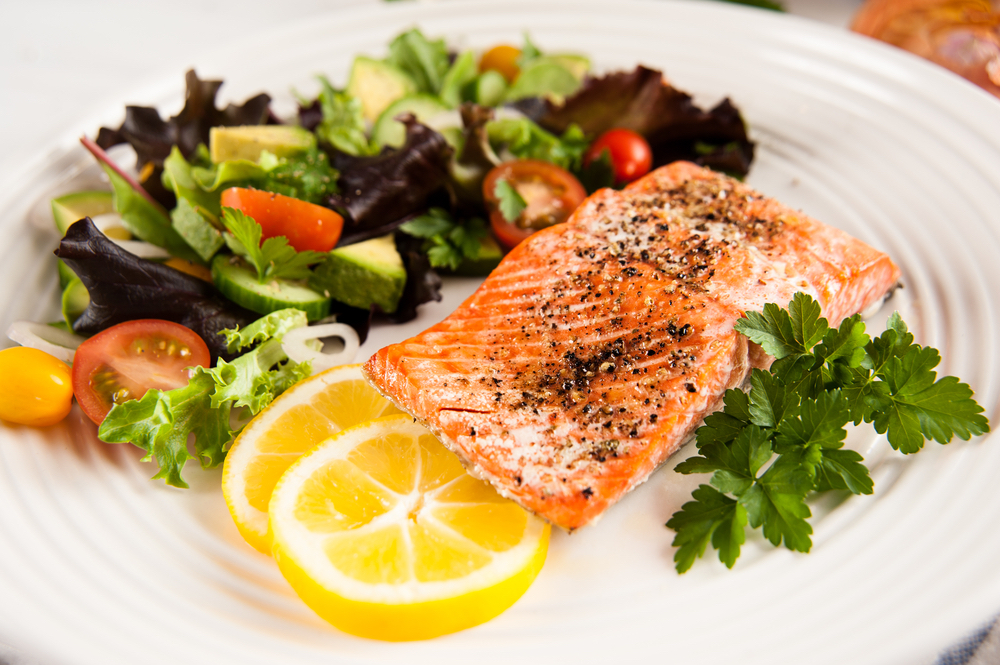
gvictoria / Shutterstock.com
The human body needs certain nutrients to sustain energy and develop healthily. Getting those nutrients, though, is easier said than done, especially in college when you’re surrounded by deliciously empty calories (donuts, anyone?). Planning just one balanced meal takes time that you don’t have, and depending on the season you could be stuck choosing between an excessive amount of grapefruit or an excessive number of bananas. Neither one of those options is going to get you all of the nutrients that you need. On top of seasonal changes, you may be limited to the options at the dining hall, where the daily specials can be a complete surprise. So what's the secret to learning how to eat healthy in the dining hall?
Whatever diet you follow—paleo, vegan, intermittent fasting—be sure that you are monitoring your portions and eating a variety of foods that treat your body well. No, eating a plate of nachos every day doesn’t count. Your meals should be rich in nutrients and low in saturated fat, sodium, and added sugars. Here are the nutrients you need to be sure to get:
Omnivorous: An omnivore eats just about everything in equal portions. Omnivores eat both animal- and plant-based foods, but neither predominates over the other.
- Since omnivores eat such a wide range of food, there are fewer chances for them to become deficient in essential nutrients. That said, a healthy omnivore eats a variety of meats, colorful fruits and vegetables, and grains. Anyone who sticks to just one food group, or eats a plethora of processed food (cheese puffs, frozen meals, and white bread, for example) will experience nutrient deficiencies. Particularly important to pay attention to is vitamin B12, found in fortified cereal, clams, and some fish.

leonori / Shutterstock.com
Vegan: A vegan diet is a plant-based diet that does not allow for the consumption of any animal products. Vegans do not eat meat, fish, or dairy.
- Protein is generally the nutrient that vegans are thought to lack, but as long as you regularly eat beans, nuts, tofu, mushrooms, and/or broccoli, you’re good to go. Trickier might be calcium (which you can find in dark leafy greens, broccoli, and almonds), vitamin B12 (found in fortified cereals), and vitamin D (found in nondairy milk and mushrooms).
Vegetarian: A vegetarian diet does not allow for the consumption of meat but generally allows animal products, such as eggs and cheese, to be consumed.
- Like vegans, vegetarians need to focus on making sure they get enough protein (found in beans, nuts, tofu, and dairy products), calcium (found in dairy products and some plants), vitamin B12 (which can be obtained from eggs or milk), and vitamin D (from fortified dairy products). Vegetarians should also aim to get enough iron by eating plenty of leafy green vegetables (such as spinach) and beans.

Anna Hoychuk / Shutterstock.com
Pescetarian: Pescetarians eat fish, but no other meat. They get both protein and Omega-3 Fatty Acids from the fish they consume. Salmon contains both vitamin B12 and vitamin D. While fish provides a good range of nutrients, some seafood may contain high levels of mercury. Pescetarians should watch the types and amounts of fish they consume and try to maintain a diet full of fish that contain minimal amounts of mercury (staying away from swordfish and shark, for example). They can round out their diets with a variety of grains, vegetables, and fruits.
Paleo: The paleo diet is one in which individuals consume food that would have been accessible to prehistoric humans: nuts, meat, fish, fruits, and vegetables. People who eat paleo do not eat refined or processed foods, and may choose not to eat dairy.
- Individuals on the paleo diet who don’t eat dairy will need to be aware that they should load up on calcium (greens, broccoli, and almonds). Also important is to make sure they’re getting enough manganese (berries, shellfish, and nuts).
While some diets may have you heading to the local grocery store to stock up on your favorite meals, you can still make the college dining hall (mostly) work for you. Keep a food journal if you're worried about the choices you've made in the past, and see where you can improve. Here are some tricks for getting nutrients in college:
- Choose whole grains over refined grains. Refined grains are processed to remove the bran and the germ from the grain kernel. Milling the grain makes the end product last longer, but it also takes out the nutrients. Whole grains use all three parts of a grain kernel, so you'll be getting your vitamin B, iron, and fiber.
- Make sure your plate is colorful! Instead of loading up on chicken and potatoes (both tan), think about chicken, asparagus, carrots, and quinoa. The more colors, the more nutrients.
- You've probably heard of the Mediterranean diet, a diet that seems to lower the risk of heart disease and consists of, among other things, olive oil. Olive oil is full of healthy fats, so choose it over other types of oil (and butter) when you can.
- Avoid fried foods when you can. They may be delicious (it's sure hard to say "no" to mozzarella sticks), but they're high in fat and generally low in essential nutrients. Choose something that's been grilled or baked instead.
- Choose a lean protein over fatty slabs of meat. Chicken and turkey are better than beef and bacon. That said, there are some cuts of red meat that are less fatty than others; consider a sirloin instead of a rib-eye.
- If you're trying to cut back on fat and cholesterol, consider eating eggs whites instead of the entire egg. Egg whites are low in fat and high in protein. It's okay to eat a few yolks, though; they're high in vitamins A, D, E, and K.
- Choose milk products that are full of calcium; skim and 1% milk typically have a higher calcium and lower fat content than whole milk. If you don't eat dairy, try soy milk or almond milk, but watch out for their sugar contents!
- Be wary of starchy vegetables like corn and potatoes. These are going to fill you up quickly but don't offer as many health benefits as other, more colorful vegetables.

5PH / Shutterstock.com
- Dining halls are often full of dessert choices: Chocolate cake, s'mores bars, key lime pie, and meringues. Instead of taking in all of the extra calories, consider having fruit for dessert. Or, at the very least, limit yourself to only one dessert option. Likewise, choose dark chocolate over milk chocolate.
- Beware of chicken and tuna salad. The word salad makes them sound deceptively healthy, but they're often chock full of mayonnaise.
- Avoid excessive amounts of salt. Too much salt raises your blood pressure and can lead to a higher risk of stroke or heart attack in the future.
- Choose plain tea and coffee over lattes and macchiatos. Even if you take your beverages with a spoonful of sugar and a bit of milk, it won't be nearly as much as you'll find in a specialty drink. Skip the calories and go straight for the caffeine (not too much though).
-
Finding Help for Alcohol and Drug Addiction: Where to Start and When to Reach Out
-
Could My Anxiety and Depression Actually Be PMDD?
-
Everything You Need to Know about Date Rape Drugs
-
Health Insurance for Students: Your Options, Simplified
-
What Recent Flooding in Louisiana Can Teach You
-
The Health Risks of Hookah and E-Cigarettes
-
About Greek Life and Sexual Assault on College Campuses
-
Is an Unhealthy Lifestyle Hindering Your Ability to Learn?
-
Seasonal Affective Disorder in College: Coping with Winter Depression
-
How to Respond to Cyberbullying
-
What to Do After You’re Mugged
-
Mental Health Boosts to Keep You on Track in the Winter


